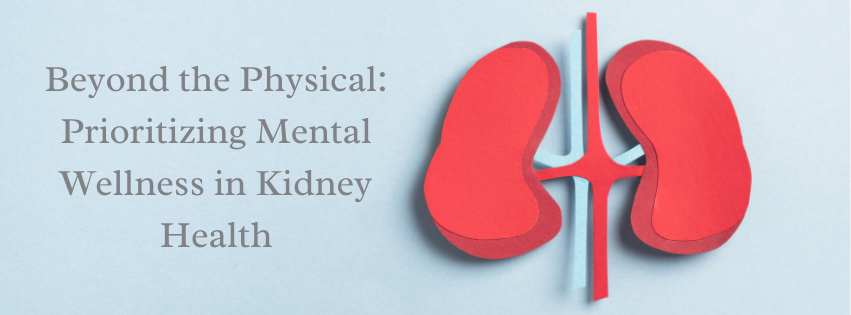|
Let’s Chat About Text-Based Therapy
What is Text-Based Therapy? With everyone so connected through digital platforms these days, using tech for mental health services is really taking off. Text-based therapy is when you chat with a licensed therapist via messaging apps. It’s a new way to connect that can feel more flexible and accessible than traditional therapy options. Some choose text therapy because it’s easy and flexible, some use it alongside their face-to-face sessions, and for others, it’s the only way therapy works for them. Why Use Text-Based Therapy? 1. Convenience One of the best things about text-based therapy is how convenient it is. Finding time for in-person or even online face-to-face sessions can be tough with busy schedules, parenting, or caregiving duties. Text-based therapy means no need to travel, so you can get support wherever you are. Plus, you can send messages anytime, making it super easy to fit into your schedule. 2. Communication Styles If you’re someone who prefers texting with friends and family, you might also prefer text-based therapy. Writing things out lets you reflect more. Both you and your therapist can take your time to process emotions and thoughts clearly. This can lead to deeper self-reflection and more meaningful conversations. Plus, you get a written record of your conversations to look back on and track your progress. 3. Integration into the Broader Mental Health Landscape Text-based therapy isn’t meant to replace traditional therapy but to complement it. It offers another option for those who might not otherwise seek help, expanding access to care. It can also be used as a hybrid model, mixing face-to-face sessions with digital check-ins. 4. Communicate at Your Speed Text-based therapy can be great for neurodivergent folks, like those who are Autistic, disabled or have ADHD. The asynchronous nature lets you take your time processing information and forming responses, reducing anxiety and improving communication clarity. Written records of sessions can also help with memory and understanding. 5. Breaking Down Barriers Text-based therapy removes barriers, making therapy more accessible. For people who are deaf or hard of hearing, written communication eliminates the need for sign language interpreters. Those with speech impairments can use text-based therapy as a primary or supplementary communication method, expressing themselves in the way that works best for them. Who is Text-Based Therapy For? Only you can decide if text-based therapy is right for you, but here are some people who have benefited from it:
How Does it Work? If you choose text-based therapy, you’ll download a secure messaging app to connect with your therapist and decide if you want to connect synchronously or asynchronously. Asynchronous Text-Based Therapy: No set session time – send messages anytime, and your therapist responds when they can, usually within 24 hours or the next working day. You’re billed only for your therapist’s time. The benefit is that you can connect anytime, as much or as little as you want. Synchronous Text-Based Therapy: You have a set session time where both you and your therapist are online, ensuring a real-time conversation. You pay for the session time just like traditional therapy. The benefit is having dedicated time with your therapist and not having to wait for their response. Potential Challenges and Considerations While text-based therapy has many benefits, there are some challenges: Lack of Nonverbal Cues Communication isn’t just about words. Nonverbal cues like body language and tone of voice are missing in text-based therapy, which can sometimes lead to misunderstandings. Clear and direct communication is key. Privacy and Security Protecting sensitive information is crucial. Reputable platforms use encryption and other security measures to keep client data safe. Still, it’s important to use secure, trusted platforms and be aware of privacy settings and policies. Conclusion Text-based therapy represents a significant step forward in making mental health care more accessible, flexible, and inclusive. By eliminating physical barriers, supporting sensory and cognitive differences, and addressing mental health conditions related to access, this approach fosters a more inclusive and equitable mental health care landscape. While it may not be a one-size-fits-all solution, its ability to meet the diverse needs of today's society is undeniable. About the Author By Joy Pekar, Registered Psychotherapist (Qualifying) Joy is passionate about making therapy accessible in so many creative and meaningful ways. She offers in therapy online and via text to people all over Ontario, and offers accessible in-home therapy for those unable to access therapy in other ways, in the town of Dundas, Ontario. If you'd like to talk to Joy about text-based therapy you can book an appointment here, or email her here. Beyond the Physical: Prioritizing Mental Wellness in Kidney Health
Self-care for people with kidney disease and their loved ones Life with kidney disease can feel like a rollercoaster ride, filled with ups and downs, uncertainties, and unexpected turns. In the whirlwind of medical appointments, treatments, and lifestyle adjustments, people sometimes overlook the emotional toll this journey can take on people living with kidney disease and their loved ones. In this blog post, we'll explore the often-overlooked aspect of mental health in the context of kidney disease and offer practical tips for nurturing your well-being beyond the physical symptoms. Navigating the Emotional Rollercoaster Each stage of living with kidney disease comes with its own challenges. There are times when you’ll have to make big decisions on managing symptoms and treatments. You may need to adjust to a new lifestyle, or a changing body. It's natural to experience a range of emotions along the way. Anxiety about the future, grief over the life you had and the life you looked forward to, and frustration with the limitations imposed by the condition are all valid feelings that many individuals with kidney disease experience. Making space for all the emotions that you’re experiencing is an important part of self-care. Coping with the realities of a chronic illness is a journey in itself; one that requires patience, resilience, and self-compassion. Cultivating Self-Care Practices When living with a chronic illness, prioritizing self-care becomes more important than ever. Taking time for yourself, even in small doses, can make a world of difference in managing your mental well-being. Whether it's going for a walk in nature, indulging in a favorite hobby, or simply taking a few moments to breathe deeply and centre yourself, finding moments of peace and joy amidst the challenges can help replenish your spirit. Building a Support Network You don't have to navigate the ups and downs of kidney disease alone. Building a strong network of family, friends, and healthcare providers can provide invaluable emotional support along the way. Whether it's a shoulder to lean on, a listening ear, or practical assistance with daily tasks, knowing that you have people who care about you and are there for you can provide a sense of comfort and reassurance. Seeking Professional Help If you find yourself struggling with persistent feelings of anxiety, depression, or overwhelming stress, don't hesitate to reach out for professional help. Therapists and support groups can provide valuable assistance in navigating the emotional challenges of kidney disease. Seeking help is a sign of strength, and you deserve to receive the care you need both physically and emotionally. Taking the step to seek professional help from a therapist or counselor can be transformative for your mental health journey. When selecting a therapist, consider the advantage of finding someone who not only specializes in mental health but also possesses a deep understanding of the unique challenges associated with kidney disease. With this knowledge, a therapist can offer valuable insights and tailored support, eliminating the need for you to explain various procedures or medical interventions. This saves you time and emotional energy, allowing you to focus directly on expressing and processing your emotions and concerns. With their familiarity with managing chronic illnesses like kidney disease, therapists can provide practical coping strategies to address your specific needs. Remember, finding the right therapist is a personal journey, so explore different options until you find someone who feels like the right fit for you. Conclusion Living with kidney disease encompasses both physical and emotional challenges. From coming to terms with the diagnosis to navigating treatment decisions and coping with the day-to-day realities, the emotional toll can be significant. By prioritizing mental wellness, building a support network, and seeking professional help when needed, individuals can find strength, resilience, and yes, even joy. Remember, you are not alone on this journey, and there is support and guidance available to help you navigate the ups and downs with courage and compassion. About the Author By Joy Pekar, Registered Psychotherapist (Qualifying) As a therapist and caregiver to loved ones navigating kidney disease (polycystic kidney disease), Joy offers a unique blend of professional skills and personal experiences. She has been there with her loved ones, from diagnosis to dialysis and transplant, through many medical hurdles, life altering decisions, and emotional complexities firsthand. She understands that each person’s experience with kidney disease is unique and is open to chat with you about yours if you’d like to connect. Also posted at: Beyond the Physical: Prioritizing Mental Wellness in Kidney Health - PKD Foundation of Canada (endpkd.ca) |
Site powered by Weebly. Managed by pair Networks


 RSS Feed
RSS Feed